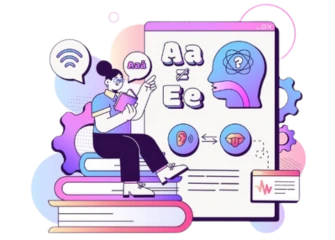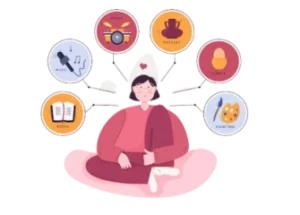
Little-Known Psychology Assessment Tools for Deeper Insight
The Hidden Arsenal: Little-Known Psychology Assessment Tools for Deeper Insight
Introduction
Psychology Assessment Tools, Psychology is a dynamic field that continually evolves with research, innovation, and advancements. While commonly known assessment tools like the MMPI or the Big Five are well-established in psychological practice, numerous lesser-known tools offer unique insights into human behavior, cognition, and emotion. These hidden gems can provide invaluable depth for clinicians, researchers, and educators seeking a more nuanced understanding of the mind, Psychology Assessment Tools.
We will uncover some of these lesser-known Psychology Assessment Tools, exploring their applications, benefits, and the unique perspectives they bring to psychological evaluations.
Traditional assessment tools are effective, but they may not capture every facet of the human experience. Exploring alternative tools can:
- Enhance diagnostic accuracy: By identifying subtle psychological patterns.
- Address specific populations: Some tools are tailored for niche groups.
- Offer innovative approaches: These tools often integrate new theories or methodologies.
- Complement standard tools: Adding layers to psychological evaluations for a holistic view.
1. The Szondi Test
Purpose: Exploring unconscious drives.
Application: The Szondi Test, developed by Léopold Szondi, focuses on the concept of “fate analysis.” It presents individuals with photographs of faces displaying various emotions and personalities. Their responses reveal unconscious tendencies and suppressed aspects of their personality.
Why It Matters: Unlike standard personality tests, the Szondi Test delves into deeper unconscious layers, helping clinicians understand internal conflicts and latent drives.
Use Cases:
- Psychodynamic therapy sessions.
- Understanding criminal behavior motives.
- Identifying underlying emotional disturbances.
2. The Lüscher Color Test
Purpose: Assessing emotional states and stress levels.
Application: Developed by Dr. Max Lüscher, this test uses color preferences to gauge a person’s psychological state. Subjects rank colors based on their preferences, and their choices indicate stress, anxiety, or psychological needs.
Why It Matters: Colors have a subconscious impact, making this tool excellent for non-verbal emotional assessment, especially useful for individuals struggling to articulate their feelings.
Use Cases:
- Rapid psychological screening.
- Assessing mood disorders.
- Cross-cultural applications where language barriers exist.
3. The Bender Visual-Motor Gestalt Test
Purpose: Evaluating visual-motor functioning and neurological integrity.
Application: This test requires individuals to replicate specific geometric designs. Variations in their drawings can highlight neurological issues or developmental disorders.
Why It Matters: It’s particularly effective for diagnosing brain damage, ADHD, and other cognitive impairments.
Use Cases:
- Pediatric developmental assessments.
- Early detection of neurocognitive disorders in adults.
- Evaluating visual-motor integration skills.
4. The Repertory Grid Technique (RGT)
Purpose: Understanding personal constructs and cognitive frameworks.
Application: Based on George Kelly’s Personal Construct Theory, RGT examines how individuals perceive their world by comparing and contrasting various elements, such as people or concepts, in their lives.
Why It Matters: It reveals an individual’s unique cognitive framework, which can be instrumental in personalized therapy.
Use Cases:
- Career counseling.
- Understanding clients’ core beliefs and cognitive biases.
- Enhancing self-awareness in coaching and therapy.
5. The Rotter Incomplete Sentences Blank (RISB)
Purpose: Assessing personality and emotional functioning.
Application: This semi-projective test asks participants to complete sentence stems (e.g., “I feel…”). Their responses can indicate underlying emotional issues and personality traits.
Why It Matters: It provides a quick, flexible, and rich qualitative assessment of personality dynamics.
Use Cases:
- Assessing adolescents and young adults.
- Evaluating emotional trauma and stress responses.
- Screening for mental health concerns in schools and workplaces.

1. Holistic Assessment
Incorporating these tools offers a more comprehensive view of the individual, addressing areas that traditional tests might overlook.
2. Tailored Interventions
Specialized tools can help design interventions that are closely aligned with an individual’s unique psychological profile.
3. Cultural Sensitivity
Some lesser-known tools, such as color-based or image-based tests, are less reliant on language, making them useful across diverse populations.
4. Innovation and Engagement
Introducing new tools can make assessments more engaging for clients, particularly younger populations or those resistant to traditional testing methods.
Challenges and Considerations
1. Reliability and Validity
Some of these tools may lack extensive validation studies, so it’s crucial to use them alongside standardized assessments.
2. Interpretation Expertise
Many lesser-known tools require specialized training to interpret accurately. Misinterpretation can lead to incorrect conclusions.
3. Ethical Concerns
Ensure that these tools are used ethically and in line with professional standards, particularly when dealing with vulnerable populations.
Q1: Are these tools scientifically validated?
Most lesser-known tools have foundational research but may lack the extensive validation of mainstream tests. Always consider using them as supplementary tools rather than standalone assessments.
Q2: Can these tools replace traditional assessments?
No. They are best used alongside established tools to provide deeper insights and a more holistic understanding.
Q3: How can I get trained in using these tools?
Many specialized psychological associations offer workshops and certifications. Consult professional bodies or training programs for opportunities.
Q4: Are these tools suitable for all age groups?
Some tools, like the Bender Gestalt Test, are versatile, while others may be more effective for specific age ranges. Always consider the individual’s developmental stage.
Q5: Are there ethical concerns in using lesser-known tools?
Yes, particularly regarding informed consent and accurate interpretation. It’s vital to ensure clients understand the purpose and limitations of these tools.
Conclusion
Exploring lesser-known psychology assessment tools can unlock deeper layers of understanding, providing valuable insights that standard tests may miss. These tools not only enrich psychological evaluations but also offer unique approaches to understanding human behavior. By integrating them thoughtfully and ethically, professionals can enhance their practice and provide more tailored support to clients.
Whether you’re a psychologist, counselor, or researcher, these hidden gems could become valuable additions to your toolkit, helping you delve deeper into the complexities of the human mind.
